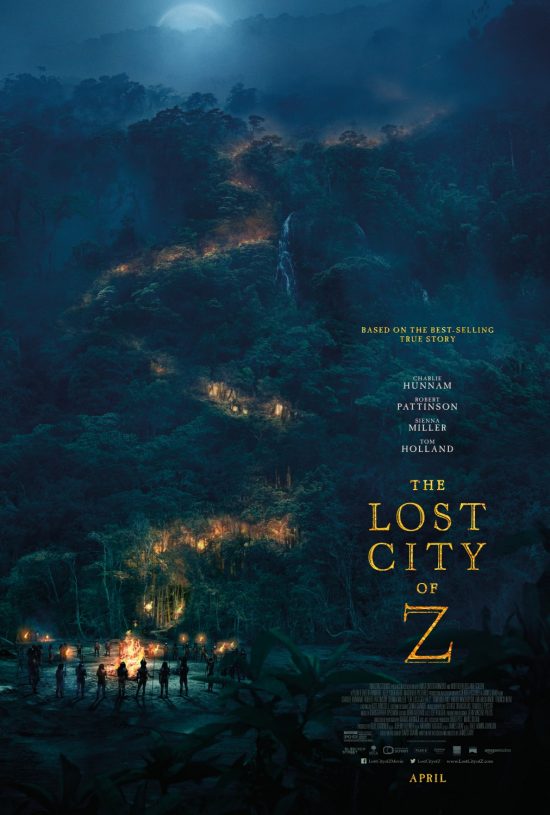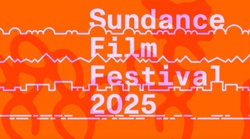Review: The Lost City of Z – “Absorbing and enchanting”
In this day and age, I find it disappointingly hard to get excited for big blockbuster film releases. I can proudly say that I can now suppress the faux excitement that invades us while we watch formulaic trailers tailor-made to stimulate the specific spots needed in our brains to make us think “Wow, that film looks awesome!” and get us to (pay) watch it. As a result, I avoid most of the onslaught of soul-less films that, despite their massive budgets and over-the-top special effects, end up being surprisingly forgettable. When I first watched the trailer for “The Lost City of Z” I was sceptical. The film looked amazing visually, most of the conventions of how to make a “good” trailer had been broken, and it was genuinely compelling. However, the same thing happened to me recently with A Cure for Wellness, and Live By Night which turned out to be cringe-worthy bad, so when I went into the cinema to watch James Gray’s The Lost City of Z, I had my guard firmly up.
The film tells the true story of British explorer Percy Fawcett (Charlie Hunnam), and his various expeditions to the Amazon jungle in South America to find a lost city he named “Z”. Although when he first proposed these trips he was laughed at by the prestigious Geographical Society in the early 20th century, he went on to become a highly respected and decorated explorer. At heart, it’s an adventure story, but its heavy air of mystery felt from the very beginning and maintained as the narrative progresses make it an engaging but true-to-its-source piece of cinema that adds to the very limited and select group of recent standout biopics that are worthy of praise, (The Founder (2016), Jackie (2016), Hacksaw Ridge (2016), Sully (2015), to name a few).
James Gray, a veteran of the Cannes Film Festival, has become a sharp, confident director, who tells the fascinating story of Fawcett with great conviction, attention to detail and respect. Gray recognizes that even though it’s not an action-packed story, it is one worth telling and there’s a lot to it if told correctly. The film has a very noticeable old-school approach to it; takes are held for longer, camera movement is limited and calculated, heavy use of natural lighting, and an almost exaggerated yellow filter all throughout, make the film very atmospheric and enchanting. The film’s editing pace makes the film feel genuine, giving the actors space to display their talent and also allowing for a better appreciation of the film’s finely constructed screenplay, also by James Gray, which should be an early contender for the big name awards that will come in later dates.
Even with a running time of almost two and a half hours, the film never feels too long.
The film’s writing is in itself a piece of literary art, ridden with symbolism and insight-fully crafted. Although I must admit that at first it was hard for me to get completely invested in Charlie Hunnam’s portrayal of Fawcett, which seemed a bit forced and hard to believe, the performance only got stronger as the film progressed to the point where I found the actor to be one of the biggest factors that makes this film so involving. Hunnam is definitely more in his element when he must communicate and perform through body language and in more physically demanding scenes than those in which he has to play out conversations between him and his wife, or him and the skeptical members of the Geographical society. Still, his performance ends on a strong note which is also what makes the film have such a good aftertaste. Hunnam showed why he’s one of the most talked about up-and-coming method actors right now, reportedly he lost 40lbs for the role and wanted to sleep in trenches to get ready for the war scenes. His chemistry with fellow explorer Henry Costin (Robert Pattinson) feels legitimate, in no small part thanks to Pattinson’s equally impressive effort- yet another role that is helping him shake off the stigma of his performance as a sparkly vampire in Twilight (2008). Testament to the film’s excellent casting, Sienna Miller’s does a very good job in her role as Fawcett’s borderline-abandoned but supportive wife, who adds a much needed feminine touch to the screen.
For those unfamiliar with how the story of Fawcett ends, I will not spoil it. The film’s strength continues through its 3 acts and culminates in a somewhat haunting ending that is powerful and though-provoking; a worthy tribute to a very brave and influential man that most likely flies under the radar of most people’s recognition. Gray has followed up the success of his sublime film The Immigrant (2013) with a film that is almost flawless in its execution and will likely garner him the attention of bigger production studios for future projects.













very good review!!
Good review, makes me wanting to see the film